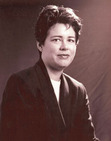Manageable Revision
While I’ve met a few–very few–working authors that profess to love revising their fiction, the rest seem to react with groans, eye rolls, or resigned shrugs. Amateur writers, by contrast, tend to respond with varying degrees of panic and/or bewilderment.
Whether professional, newbie, or hobbyist, any writer worth some salt should know that revision is part of the job. A story isn’t completed in the rough draft. It’s completed when it’s written, rewritten, polished, and right.
However, whether a writer enjoys it, accepts it, or loathes it, there’s no need to panic or feel lost during the process.
If you’re at the stage where you’re still learning the writing craft and have little to no experience with the revision aspect of putting a story together, let me say right now there’s no need to be afraid.
Fear is unproductive, and while it’s possibly responsible for more than a few manuscript files never being opened again, you can vanquish it by facing it and understanding how to deal with it.
Maybe fear is too dramatic a term. Maybe you’re simply confused, puzzled, nervous, or unsure about a few areas in your story line. Perhaps you’re willing to tackle revisions, but you just don’t know where to begin.
Here’s what I always tell my classroom students regarding the very first step of revision. And that’s to type “The End” on the last page of your rough-draft manuscript. If you haven’t written an entire draft from start to finish–however wobbly–you’re not ready to make changes or decisions.
It’s best to write your rough draft with as much focus as you can sustain. Don’t write while second-guessing yourself. Don’t write with mental reservations. Don’t write with the idea that your weakly designed sidekick will have to be redone. Trying to work with that kind of split-focus in play means your scenes will be choppy or fragmented, characters will act or speak in contrived ways, the plot will jump here and there without cohesion, and the conflict will continuously weaken as you try to push events forward.
Ray Bradbury advised writers to plan slowly and coolly and then write as hot and fast as possible. Train yourself to outline ahead of time. Writing by the seat of your pants is so very appealing because it makes you feel defiant, rebellious, and artistic, but it really tends to result in a lot of dead ends, restarts, and confusion that could otherwise be mitigated. If you want to feel defiant, rebellious, and artistic, wear mismatched socks that clash with the rest of your clothing, but by all means plan your story up front.
Even if you can only plot the first and third acts of your great American novel-to-be and you’re vague about the middle, if you must launch your story right now or die, then leap in and swim as though you’re crossing the Gulf of Mexico with sharks snapping at your toes. Go fast. Go big.
Whatever you do, don’t stop and rewrite while you’re still in rough draft.
Type it all the way through the ending. You may be exhausted, half-drowned, and missing a foot, but finish the rough draft before you fix anything.
Then assess what you have as coolly as you can. The revision process takes time. It should be addressed in small, manageable chunks. Deal with one task before you tackle another. Don’t try to do everything at once. You’ll only confuse yourself and end up overwhelmed.
Remember how long it took you to write your first draft. A week, if it’s a short story? A month? Five months if it’s a novel? Two years?
Do you really think revision can be wrapped up in a matter of hours?
Not going to happen.
Like writing, revision is accomplished one small bit at a time.
Assessment is all about facing the weaknesses and repairing them. It’s about solidifying your plot and plugging its holes. It’s about adding complexity to your major characters and governing viewpoint. It’s about making the antagonist tougher so that your hero is forced to be stronger, try harder, and reach farther than expected. It’s about owning up to your poor punctuation habits, turning on your computer’s spell check function, and cleaning up your grammar.
Revision isn’t a matter of jumping here and there through the manuscript like a feral rabbit hunting clover in a suburban Bermuda-lawn. It’s not about hiding things you don’t know how to fix or hoping no editor will notice them. It’s not about ignoring the flaws or, worse, dwelling on them until you’re in such despair you delete your files permanently.
Most importantly, revision isn’t about throwing out the good along with the bad. It’s about learning your craft, then finding the courage to trust that craft. Whatever is weak, make it better. If you don’t know how, find out. Whatever works–even if you doubt it–leave it alone. As you hone your story instincts, find the strength to rely on them.
C. Aubrey Hall's Blog
- C. Aubrey Hall's profile
- 7 followers



